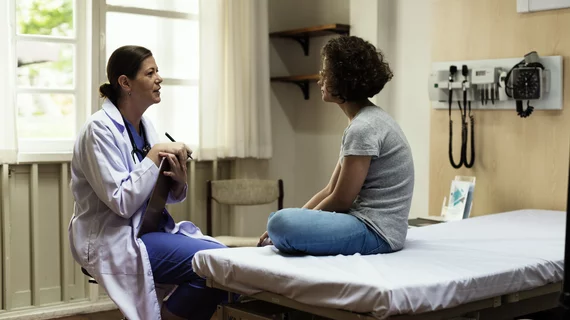Survey: Nearly 50% of US patients feel anxious about undergoing imaging procedures
Many U.S. patients feel well-informed heading into imaging procedures, but nearly half still reported feeling anxious, according to a new worldwide survey.
"Medical imaging is critical to detecting and monitoring a variety of diseases, but patients are often nervous when they learn they need an MRI or CT scan, about the procedure itself and the results," said Jocelyn Rapelyea, MD, with The George Washington University in Washington D.C., in a press release. "These findings will help radiology suites better understand their patient's needs, help reduce anxiety and better prepare them for their procedure, which may ultimately increase image quality."
The online survey, conducted by Healthcare Research Worldwide and funded by Bayer, polled 1,085 patients across the globe. Researchers surveyed 162 in the U.S., 155 in Brazil, as well as in Italy and Germany, 151 in both France and Japan and 156 in South Korea. All surveyed had undergone a CT or MRI within the last 12 months, with or without contrast media.
Of those U.S. patients surveyed, nearly 25 percent said more face-to-face interaction would be helpful before imaging, and 15 percent wanted electronic support, such as a video explaining the procedure. Previous research has shown adequately preparing patients for their imaging procedures can help improve image quality, and subsequently aid detection, according to the release.
Additionally, upwards of 75 percent of U.S. patients listed the quality of the consultation as the most important factor during their imaging experience. Another 18 percent of patients felt comfortable with a computer interpreting their image results rather than a healthcare provider.

